Can anxiety cause acne?
'Can anxiety cause acne?' Explore the link between stress, anxiety & skin health. Uncover the truth behind worry-induced breakouts in our comprehensive guide.
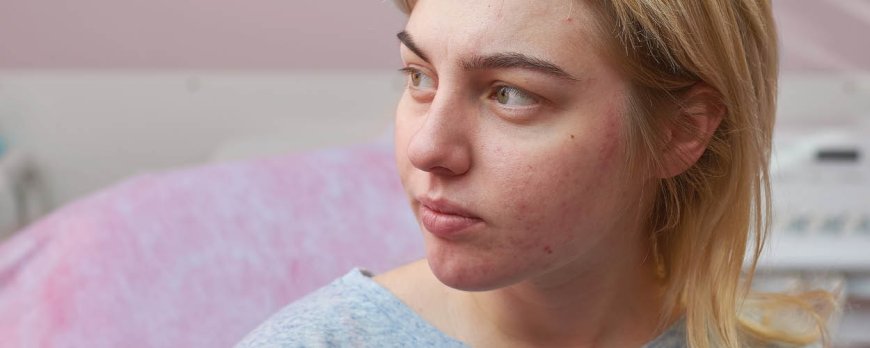
Can Anxiety Cause Acne?
Many people wonder if there is a connection between anxiety and acne, and in this article, we'll explore the truth behind this common concern. Anxiety and acne are closely linked, with one often exacerbating the other. Anxiety can cause acne breakouts by increasing stress hormones, which lead to changes in the pores and an increase in skin oil production. Sweating and behavioral changes associated with anxiety can also contribute to acne. Conversely, acne can cause anxiety due to the negative impact on self-esteem and body image. Treating both anxiety and acne holistically, through a combination of therapy, medication, and dermatological treatment, may be the most effective approach.
Key Takeaways:
- Anxiety and acne are closely linked, with one often exacerbating the other.
- Anxiety can cause acne breakouts by increasing stress hormones, which affect the skin.
- Sweating and behavioral changes associated with anxiety can contribute to acne.
- Acne can cause anxiety due to its negative impact on self-esteem and body image.
- Treating both anxiety and acne holistically is important for better outcomes.
The Link Between Anxiety and Acne
Numerous studies have highlighted the relationship between anxiety and acne, showing a clear connection between mental health and the condition of our skin. Anxiety can have a direct impact on our skin, leading to increased breakouts and worsening acne symptoms. Understanding this link is crucial in order to effectively address both the mental and physical aspects of these conditions.
When we experience anxiety, our body releases stress hormones such as cortisol. These hormones can stimulate the oil glands in our skin to produce more sebum, which can clog our pores and contribute to the development of acne. Additionally, anxiety-induced behaviors like excessive sweating and touching our face can further aggravate acne breakouts, as they provide a fertile environment for bacteria to thrive.
Mental health and acne are intertwined in a complex relationship. Acne can cause significant distress, leading to lowered self-esteem, increased social anxiety, and a negative impact on overall mental well-being. The visible presence of acne can fuel feelings of self-consciousness and exacerbate anxiety symptoms. It's essential to address both mental health and acne concurrently to achieve optimal treatment outcomes.
By employing a holistic approach that combines therapy, medication, and dermatological treatments, individuals with anxiety-induced acne can manage and reduce breakouts effectively. Therapy can help individuals develop coping mechanisms to reduce stress and anxiety-related symptoms, including acne. Medications prescribed for anxiety can also potentially improve acne symptoms, as they address the underlying causes of anxiety. Dermatological treatments, such as topical creams or oral medications, can provide targeted relief for acne breakouts, minimizing their impact on mental well-being.
Understanding Stress-Induced Acne
Stress, a common symptom of anxiety, has a direct impact on our skin's health, often leading to the development or worsening of acne. When we experience stress, our bodies release stress hormones like cortisol, which can stimulate the sebaceous glands in our skin to produce more oil. This excess oil, along with dead skin cells, can clog our pores and create an environment conducive to acne-causing bacteria.
Anxiety-related skin issues are not just limited to hormonal changes. Sweating, a common response to anxiety, can further exacerbate acne breakouts. As we sweat, the moisture mixes with oil and bacteria on our skin, potentially clogging our pores and causing inflammation. Additionally, anxiety-related behaviors like constantly touching or picking at the face can introduce dirt, bacteria, and oils to the skin, increasing the likelihood of acne formation.
To fully understand stress-induced acne, it is crucial to consider the psychological factors at play. Constant worrying, negative emotions, and disrupted sleep patterns associated with anxiety can weaken the immune system and impair skin barrier function. This weakened defense mechanism can make the skin more susceptible to inflammation and infection, leading to the development of acne lesions.
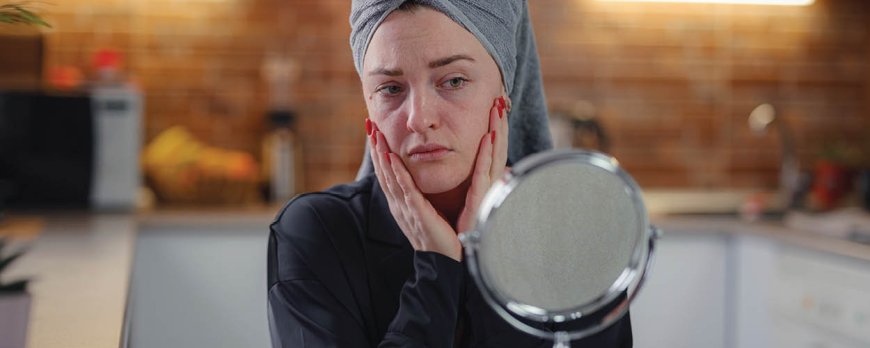
The impact of anxiety on acne
- Anxiety can lower self-esteem and body image, causing increased stress and psychological distress, which can further exacerbate acne symptoms.
- The negative impact of acne on self-confidence and social interactions can reinforce anxiety, creating a cycle where both conditions perpetuate each other.
- Individuals with anxiety are more prone to picking at their skin, leading to scarring and prolonged healing time for acne lesions.
It is important to address anxiety and acne holistically to effectively manage both conditions. By combining therapy to address the psychological aspects of anxiety, medication to alleviate symptoms, and dermatological treatments to improve skin health, individuals can experience significant improvements in their overall well-being. Understanding the link between anxiety and acne is the first step towards developing a comprehensive treatment plan that targets both the mental and physical aspects of these interconnected conditions.
The Role of Stress Hormones
Stress hormones play a significant role in the development of acne, as they can disrupt the delicate balance of oil production in our skin. When we experience anxiety or stress, our bodies produce an excess of stress hormones, such as cortisol. These hormones can stimulate the sebaceous glands, leading to increased oil production. The excess oil can clog the pores and create an ideal environment for acne-causing bacteria to thrive.
Furthermore, stress hormones can also affect the skin's natural healing process, causing inflammation and making acne breakouts more severe. The disruption of the skin's barrier function can make it more susceptible to infection and can prolong the healing time of acne lesions.
In addition to the physical effects, psychological factors can also contribute to the formation of acne. When we are under stress, we may engage in behaviors such as touching our face, picking at blemishes, or neglecting skincare routines. These behaviors can introduce more bacteria to the skin, exacerbate inflammation, and worsen acne symptoms.
Managing Stress-Induced Acne
To effectively manage stress-induced acne, it is crucial to address both the underlying anxiety and the physical symptoms. Psychotherapy, such as cognitive-behavioral therapy, can help individuals develop coping mechanisms to reduce stress and anxiety-related symptoms, including acne. Medications may also be prescribed to manage anxiety, which can indirectly improve acne symptoms.
- Topical treatments, such as benzoyl peroxide and salicylic acid, can help reduce oil production and unclog pores.
- Oral medications, like antibiotics or hormonal therapies, may be prescribed to target inflammation and hormonal imbalances.
- Procedures such as chemical peels or laser therapy can help improve skin texture and reduce acne breakouts.
Adopting a holistic approach is essential in managing anxiety-induced acne. Lifestyle modifications, such as practicing stress-reduction techniques (e.g., meditation or yoga), getting regular exercise, and maintaining a healthy diet, can support overall mental and skin health.
Sweating and Behavioral Changes: Contributing Factors to Anxiety-Related Acne
Anxiety can often manifest in physical symptoms, such as sweating or behavioral changes, both of which can contribute to the development of acne. These anxiety-related skin issues can exacerbate existing acne or trigger new breakouts.
Sweating is a common physiological response to anxiety. When we experience anxiety or stress, our bodies produce more sweat as part of the fight-or-flight response. However, excess sweat can mix with oils and bacteria on the skin, leading to clogged pores and the formation of acne.
Furthermore, behavioral changes associated with anxiety can also impact our skin health. People with anxiety may be more likely to touch their face or pick at their skin, unknowingly introducing bacteria or irritants that can contribute to acne formation. Additionally, anxiety-induced behaviors like inadequate sleep, poor dietary choices, or neglecting skincare routines can further aggravate acne symptoms.
Recognizing the link between anxiety-related skin issues and acne is important in understanding how to manage and treat both conditions. By addressing anxiety through stress reduction techniques, therapy, and medication, individuals may be able to mitigate the physical manifestations of anxiety, including acne breakouts. Combining this holistic approach with dermatological treatments like topical medications or oral medications prescribed by a healthcare professional can help manage and reduce stress-induced acne.
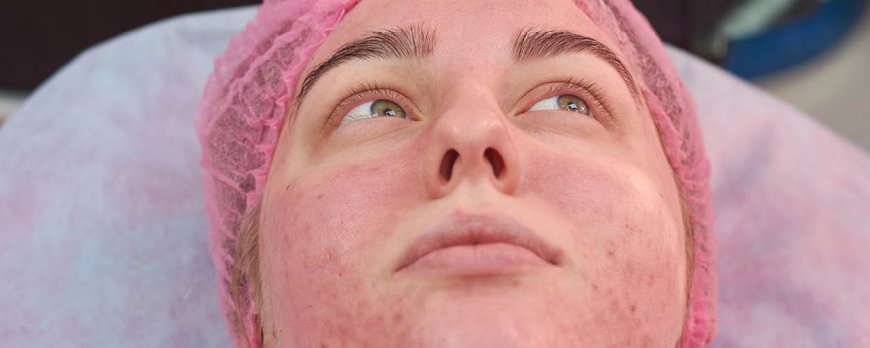
The Impact of Acne on Anxiety
Acne can have a profound impact on an individual's mental health, particularly for those already struggling with anxiety. The visible presence of acne breakouts can trigger negative emotions, leading to lower self-esteem and increased social anxiety. Individuals with anxiety may experience heightened distress and self-consciousness due to their skin condition, further exacerbating their anxiety symptoms. In turn, the cycle continues as anxiety can potentially worsen acne breakouts.
When acne affects someone with anxiety, it can lead to a vicious cycle of negative thoughts and feelings. The physical appearance of acne breakouts may amplify feelings of self-doubt and insecurity, causing individuals to withdraw from social interactions and avoid situations where they feel scrutinized or judged. This avoidance can further isolate individuals and intensify their anxiety, compounding the impact on their mental well-being.
The Psychological Effects
- Low self-esteem and self-confidence
- Increased social anxiety and self-consciousness
- Depression and feelings of hopelessness
- Impaired body image and body dysmorphia
It is important to recognize that the psychological effects of acne on individuals with anxiety can vary widely, with some individuals experiencing more severe emotional distress than others. The impact of acne on mental health should not be underestimated, as it can negatively affect various aspects of an individual's life, including personal relationships, academic or professional performance, and overall quality of life.
Addressing both anxiety and acne concurrently is crucial for comprehensive treatment and optimal outcomes. By implementing holistic approaches that involve therapy to manage anxiety symptoms and dermatological treatments to address acne breakouts, individuals can work towards improving their mental well-being and skin health simultaneously. Such an approach recognizes the intricate connection between the mind and body, ensuring that both aspects are adequately addressed and supported in the journey towards overall wellness.
Treating Anxiety-Induced Acne
Treating anxiety-induced acne requires a comprehensive approach that addresses the underlying anxiety while also targeting the physical symptoms of acne. Managing acne caused by anxiety involves a combination of therapy, medication, and dermatological treatments. By addressing both the mental and physical aspects of these conditions, individuals can find relief and improve their overall well-being.
Therapy: Therapy plays a crucial role in managing anxiety and acne. Cognitive-behavioral therapy (CBT) is often recommended as it helps individuals identify and challenge negative thought patterns and behaviors that contribute to anxiety and acne. Additionally, techniques such as mindfulness and relaxation exercises can help reduce stress and promote better skin health.
Medication Options: In some cases, medication may be prescribed to manage anxiety and, consequently, reduce acne symptoms. Anti-anxiety medications and antidepressants can help regulate stress hormones, which can contribute to acne breakouts. It is important to consult with a healthcare professional to determine the appropriate medication and dosage for individual needs.
Dermatological Treatments: Dermatological treatments can target the physical symptoms of acne caused by anxiety. Topical treatments, such as retinoids and benzoyl peroxide, can help unclog pores and reduce inflammation. In more severe cases, oral medications or procedures like chemical peels or laser therapy may be recommended. It is essential to consult with a dermatologist to determine the best treatment plan for specific skin concerns.
Summarizing the Approach
- Treating anxiety-induced acne requires a comprehensive approach that addresses both the underlying anxiety and the physical symptoms of acne.
- Therapy, such as cognitive-behavioral therapy (CBT), can help individuals identify and challenge negative thought patterns and behaviors while incorporating relaxation techniques to reduce stress.
- Medication options, such as anti-anxiety medications and antidepressants, may be prescribed to regulate stress hormones and alleviate acne symptoms.
- Dermatological treatments, including topical treatments and procedures, can target the physical manifestations of acne caused by anxiety.
By combining therapeutic interventions, medication management, and dermatological treatments, individuals can effectively manage anxiety-induced acne and improve their overall quality of life. It is essential to work with healthcare professionals to develop a personalized treatment plan that considers both the mental and physical aspects of the conditions.
Therapy for Anxiety and Acne
Therapy can be a valuable tool in managing both anxiety and acne, providing individuals with the skills and support to navigate their emotions and skin health. By addressing the underlying causes of anxiety, therapy can help reduce stress levels and prevent the hormonal changes that contribute to acne breakouts. It can also help individuals develop coping mechanisms to manage anxiety-related behaviors that can worsen acne symptoms.
There are different types of therapy that may be beneficial for individuals with anxiety and acne. Cognitive-behavioral therapy (CBT) is often used to help individuals identify and change negative thought patterns and behaviors that contribute to anxiety and stress. This can help reduce anxiety levels and improve overall mental well-being, which in turn may lead to a reduction in acne breakouts.
Benefits of therapy for anxiety and acne:
- Provides a safe and supportive space to express emotions and concerns related to anxiety and acne
- Teaches relaxation techniques and stress management strategies to reduce anxiety levels
- Helps individuals develop healthy coping mechanisms and problem-solving skills to manage stress and anxiety-related symptoms
- Addresses underlying psychological factors that contribute to acne formation and helps individuals improve their self-esteem and body image
Overall, therapy can play a crucial role in managing both anxiety and acne. It provides individuals with the tools and support they need to navigate their emotions, reduce stress, and improve their overall mental and skin health.
Medication Options for Anxiety-Induced Acne
Medication can be an effective option for individuals struggling with anxiety-induced acne, helping to alleviate both the mental and physical symptoms. Here are some commonly prescribed medications that may be used in the treatment of anxiety-induced acne:
- Antidepressants: Selective Serotonin Reuptake Inhibitors (SSRIs) are commonly prescribed to manage anxiety and improve mood. They can also have a positive impact on acne symptoms by reducing stress and regulating hormones.
- Anti-anxiety medications: Benzodiazepines are often used to treat anxiety disorders. While they may not directly target acne, they can help alleviate anxiety symptoms, which in turn may improve acne symptoms.
- Hormonal medications: In some cases, hormonal imbalances can contribute to acne. Oral contraceptives or anti-androgen medications may be prescribed to regulate hormone levels and help control acne breakouts.
It's important to note that medication should be prescribed by a qualified healthcare professional after a thorough evaluation of the individual's medical history and specific needs. Different medications may have different side effects and interactions, so it's crucial to follow the prescribed dosage and consult with a healthcare provider regularly.
In addition to medication, it's also beneficial to combine these treatments with therapy and other holistic approaches for a comprehensive approach to managing anxiety-induced acne.
Dermatological Treatments for Acne
Anxiety-induced acne can be effectively managed through dermatological treatments that target the physical symptoms, aiming to achieve clearer skin. These treatments play a crucial role in addressing the specific concerns associated with acne breakouts caused by anxiety.
One of the most common dermatological treatments for acne is topical medication. These medications are applied directly to the skin and work by reducing inflammation, unclogging pores, and controlling oil production. Topical treatments often contain ingredients such as benzoyl peroxide, salicylic acid, or retinoids, which have been proven to effectively treat acne. Dermatologists may prescribe specific topical medications based on the severity and type of acne.
In some cases, oral medications may be recommended for anxiety-induced acne. These medications work systemically to regulate hormones and reduce inflammation. Antibiotics, hormonal contraceptives, and isotretinoin are examples of oral medications that may be prescribed to manage acne. It is important to consult with a dermatologist to determine the most suitable oral medication based on individual needs and considerations.
In addition to topical and oral medications, dermatologists also offer various procedures to address anxiety-induced acne. These procedures include chemical peels, laser therapy, and microdermabrasion. Chemical peels help remove dead skin cells, unclog pores, and reduce acne-related pigmentation. Laser therapy can target acne-causing bacteria, reduce inflammation, and promote collagen production. Microdermabrasion exfoliates the skin, improving its texture and reducing the appearance of acne scars.
Summary:
- Dermatological treatments are essential in managing anxiety-induced acne and targeting physical symptoms.
- Topical medications, such as benzoyl peroxide and retinoids, help reduce inflammation and unclog pores.
- Oral medications, including antibiotics and hormonal contraceptives, regulate hormones and reduce inflammation.
- Procedures like chemical peels, laser therapy, and microdermabrasion can improve skin texture and treat acne-related concerns.
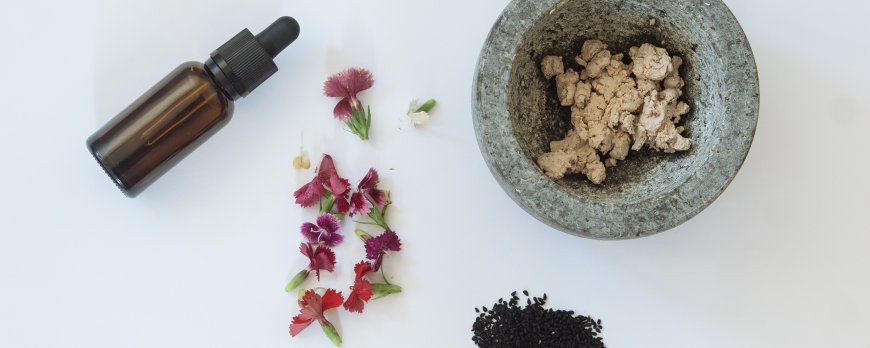
Holistic Approaches for Anxiety and Acne
Taking a holistic approach to managing anxiety-induced acne can yield positive results by addressing the underlying causes and promoting overall well-being. By incorporating therapies that target both the mind and the skin, individuals can find relief from anxiety symptoms while also improving their skin health. Here are some holistic approaches that can be effective in managing acne caused by anxiety:
- Therapy: Engaging in therapy can help individuals develop coping mechanisms to reduce stress and anxiety-related symptoms, including acne. Cognitive-behavioral therapy (CBT) and mindfulness-based stress reduction (MBSR) are two commonly used techniques that have shown promising results in managing anxiety and improving skin conditions.
- Lifestyle modifications: Making positive lifestyle changes can significantly impact anxiety levels and acne breakouts. Regular exercise, a healthy diet rich in fruits and vegetables, and adequate sleep can improve overall well-being, reducing stress levels and promoting healthier skin.
- Stress reduction techniques: Incorporating stress reduction techniques into daily life can help manage anxiety and prevent acne flare-ups. Practices such as deep breathing exercises, meditation, yoga, and relaxation techniques can help calm the mind, reduce stress hormones, and minimize the impact on the skin.
Additional Approaches:
Self-care practices: Engaging in self-care activities can promote emotional well-being and skin health. This may include activities like taking regular breaks, practicing self-compassion, and engaging in hobbies that bring joy and relaxation. It's important to prioritize self-care and create a balanced lifestyle to manage anxiety and prevent acne breakouts.
Complementary therapies: Complementary therapies such as acupuncture, aromatherapy, and herbal supplements may be considered as part of a holistic approach to managing anxiety and acne. It's essential to consult with a healthcare professional before incorporating any complementary therapy to ensure safety and effectiveness.
By taking a holistic approach to managing anxiety-induced acne, individuals can address the root causes of their skin issues while improving their overall well-being. It's important to remember that everyone's journey is unique, and what works for one person may not work for another. Consulting with a healthcare professional is crucial to developing a personalized treatment plan that meets individual needs and promotes long-term skin health.
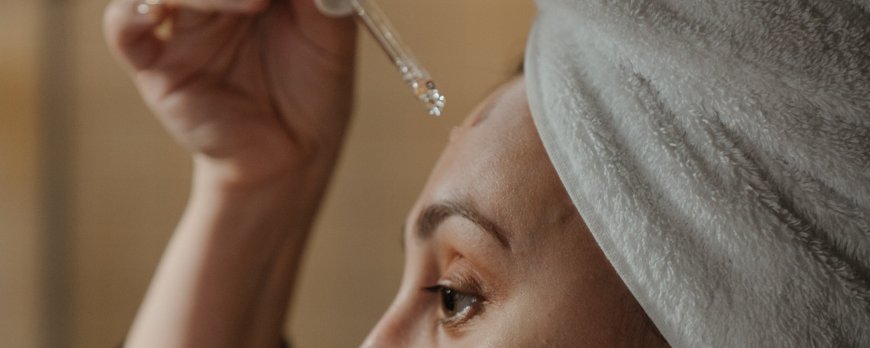
Conclusion
In conclusion, the relationship between anxiety and acne is well-established, with one often exacerbating the other. Anxiety can cause acne breakouts by increasing stress hormones, such as cortisol, which leads to changes in the pores and an increase in skin oil production. Sweating and behavioral changes associated with anxiety, such as excessive face touching, can also contribute to the formation of acne.
Conversely, acne can cause anxiety due to its negative impact on self-esteem and body image. Individuals with acne may face social anxiety and a decrease in self-confidence, perpetuating a cycle of anxiety and skin issues. Therefore, addressing both the underlying anxiety and the resulting acne breakouts is crucial for optimal treatment outcomes.
It is recommended to approach treatment for anxiety-induced acne holistically, combining therapy, medication, and dermatological interventions. Therapy can help individuals develop coping mechanisms to reduce stress and anxiety-related symptoms, including acne. Medication options, commonly used to manage anxiety, may also have a positive impact on acne symptoms. Dermatological treatments, such as topical creams, oral medications, and other procedures, can help manage and reduce acne breakouts caused by anxiety.
Overall, taking a holistic approach that targets both the mental and physical aspects of anxiety and acne can yield the most effective results. By addressing the underlying anxiety and implementing appropriate dermatological treatments, individuals can strive for improved mental health and clearer skin.
FAQ
Can anxiety cause acne?
Yes, anxiety can cause acne breakouts. Stress hormones released during periods of anxiety can lead to changes in the pores and an increase in skin oil production, both of which can contribute to acne formation.
How does anxiety contribute to acne?
Anxiety can contribute to acne by increasing stress hormones, which affect the skin's sebaceous glands and oil production. Additionally, anxiety-related behaviors such as excessive sweating and touching the face can contribute to clogged pores and the development of acne.
Can acne cause anxiety?
Yes, acne can cause anxiety due to its negative impact on self-esteem and body image. Acne breakouts can lower self-confidence, increase social anxiety, and contribute to a cycle of anxiety and skin issues.
What is the best approach to treating anxiety-induced acne?
The most effective approach to treating anxiety-induced acne is to address both the underlying anxiety and the resulting acne breakouts. This can involve a combination of therapy, medication, and dermatological treatments to manage anxiety symptoms and improve skin health.
How can therapy help with anxiety and acne?
Therapy can be beneficial in managing both anxiety and acne. Different types of therapy can help individuals develop coping mechanisms to reduce stress and anxiety-related symptoms, including acne.
Are there medications that can help with anxiety-induced acne?
Yes, there are medications that can help manage anxiety-induced acne. Common medications used to treat anxiety may also improve acne symptoms.
What dermatological treatments are available for acne?
Dermatological treatments for acne include topical treatments, oral medications, and other procedures. These treatments can help manage and reduce acne breakouts caused by anxiety.
Are there any holistic approaches to managing anxiety and acne?
Yes, holistic approaches can be beneficial in managing anxiety and acne. Lifestyle modifications, stress reduction techniques, and self-care practices can support overall mental and skin health.


































































































































